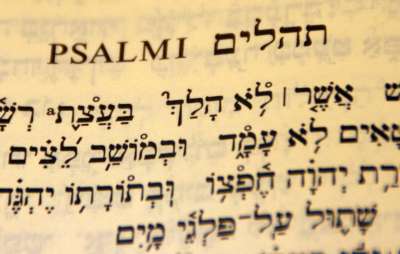 Even I, by no means an Old Testament scholar, am familiar with the common suggestion that the first two psalms serve as an introduction to the whole book. I recall one reading from my undergraduate days in which the author mentioned this, and noted that the first psalm especially, but also the second, commended ‘theological reflection’ as the purpose of the psalms. This perspective was supplemented by other perspectives which suggested this purpose as prayer and praise, extended further by other views which located the meaning of the psalms in the liturgical structures of ancient Israel’s worship.
Even I, by no means an Old Testament scholar, am familiar with the common suggestion that the first two psalms serve as an introduction to the whole book. I recall one reading from my undergraduate days in which the author mentioned this, and noted that the first psalm especially, but also the second, commended ‘theological reflection’ as the purpose of the psalms. This perspective was supplemented by other perspectives which suggested this purpose as prayer and praise, extended further by other views which located the meaning of the psalms in the liturgical structures of ancient Israel’s worship.
In his essay, “Towards a Canonical Reading of the Psalms,” Gordon Wenham argues similarly to the first of my undergraduate readings (See Wenham in, Bartholomew, Hahn, Parry, Seitz, and Wolters (eds), Canon and Biblical Interpretation Scripture & Hermeneutics series, Volume 7 (Paternoster), 333-351). Wenham does not suggest that a canonical reading is the only way in which to read and interpret the Psalms, but that it is fruitful and warranted to read them also in this way. His primary argument is that available evidence suggests a deliberate arrangement of the Psalter in which individual psalms are carefully situated within the whole, and sets the whole within a wisdom framework that also incorporates a prominent royal theme that raises questions concerning the Davidic dynasty and hope for a ‘New David’ in Israel’s future.
A canonical reading of individual psalms will read them with several contextual horizons in view:
- The whole Psalter, and especially the particular psalm’s near neighbours.
- The Jewish canon (i.e., the Hebrew Bible), and,
- The Christian canon of Old and New Testaments.
I found several of Wenham’s points very helpful for my own use of the psalms, and especially this citation from Gerald Wilson’s The Editing of the Hebrew Psalter which, to my mind, reclaims the Psalms from the sphere of the professional scholar for use by every member of the people of God.
The effect of the editorial fixation of the first psalm as an introduction to the whole Psalter is subtly to alter how the reader views and appropriates the psalms collected there. The emphasis is now on meditation rather than cultic performance; private, individual use over public, communal participation. In a strange transformation, Israel’s words of response to her God have now become the Word of God to Israel (336).
Again, this is not a case of either private devotional use or public participation in communal worship. Although it may well be the case that the psalms had their origin in Israel’s liturgical life, this is not their meaning. The editors’ selection of Psalm 1 at the head of the Psalter has effected this ‘strange transformation.’ The opening psalm authorises a devotional approach, the reception of these words as God’s Word to his people which they may also use in their theological reflection, their prayer and worship, their lament and celebration, devotionally and privately as well as devotionally and corporately.